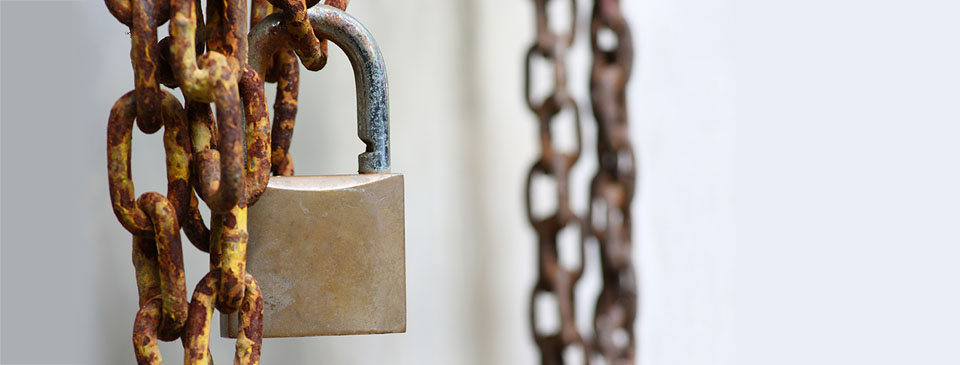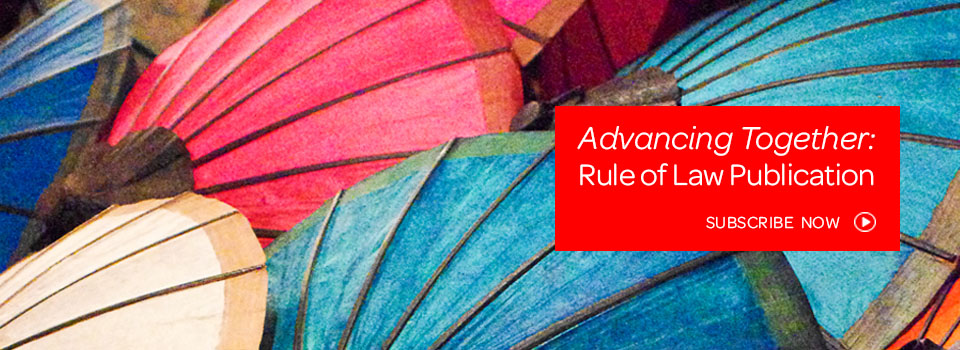Modern Slavery: a first world problem
6 December 2017 | Veronica Rios, Executive Manager of Rule of Law APAC, LexisNexis

The Walk Free Foundation estimates that 40.3 million people were victims of modern slavery in 2016, including 24.9 million people living under conditions of forced labour1. To put these numbers in perspective, 12.5 million people entered slavery throughout the 300-year duration of the transatlantic slave trade.
Beyond historic ideas of slavery as existing in a state of captivity and ownership, individuals can exist in a state of slavery in developed nations through means such as wage exploitation, debt bondage, forced labour and human trafficking. In these cases, individuals can have an element of ownership over a victim’s life through coercion and restriction of movement.
Slavery in Australia
Slavery isn’t as far away as you may think. The Global Slavery Index (launched by Russell Crowe in 2016) estimates that up to 4,300 people are enslaved in Australia and reports that the number of Australian Federal Police investigations relating to modern slavery have doubled in the past two years2.
A result of one of these investigations was a raid in Southwest WA in March 2017, which found 50 foreign workers in forced labour and housed in cramped quarters by a labour hire intermediary company operating illegally in Pemberton3.
If you’re asking yourself how this could possibly happen in Australia, individuals with Australian citizenship sponsor foreign nationals to enter the country and in return create an artificial debt, which have been found to range from $18,000 to $53,000. These people live and work legally within Australia, but are forced to direct part of their wage to the sponsor, forcing their living condition into a state of bondage.
It isn’t only Australian’s lacking a moral compass who perpetuate this, as well-meaning business owners may find themselves breaking the law without the right education or knowledge.
This is often the case in the hospitality or farming and agriculture sectors where many business owners are not aware of existing employment standards and in an attempt to drive profit end up exploiting employees. For example, many foreign backpackers have fallen victim to wage exploitation in the process of trying to obtain their second year 417 visas and are at high risk due to their vulnerability and isolation in remote areas.
To compound this issue, Australia remains one of the few countries in the world with no regulation or licensing arrangements for labour hire companies.
The demand for cheap labour sees suppliers of multinational companies subcontracting elements of production into unregulated markets where transparency is lost.
Beyond our borders
Modern slavery practices exist within the supply chains of Australian businesses both internationally and domestically, yet awareness of contributions to human rights violations by Australian businesses is lacking.
Part of the cause of this is that the supply chains of multinational companies are not a simple direct relationship between the company and an offshore production facility. As production becomes increasingly competitive, the demand for cheap labour sees suppliers of multinational companies subcontracting elements of production into unregulated markets where transparency is lost.
The Rana Plaza factory disaster in 2013 epitomises the consequence of these practices – being an incident that cost the lives of 1,138 people in Bangladesh.
As part of the reaction to this disaster, a 2017 report by Baptist World Aid (BWA) evaluated 106 companies with a rating of A to F based on the transparency of their supply chains4. Nine companies including fashion brands Oxford, Wish, Decjuba, Roger David and Betts refused to answer questions about their supply chain practices, leaving them with the lowest rating of F.
Whilst fashion has historically been at the centre of supply chain case studies, food imports have made headlines in Australia, including the importation of canned tuna. The Walk Free Foundation has highlighted that the majority of canned tuna that we consume in Australia comes from Thailand; a country which has recently faced sanctions from the EU and USA as the result of forced labour practices in its fisheries5.
It’s time to acknowledge that Modern Slavery is a real issue that’s not mean to be swept under the carpet, but to be dealt with by the law. The introduction of a specific branch or ombudsmen would ensure specialisation, education and support to the Australian government and public to implement, adhere and monitor the impact of Modern Slavery legislation.
Taking a leaf from the UK Modern Slavery Act
For companies with revenue founded on obscure or complex international supply chains, implementing slave free policies is not a simple task, and is arguably beyond the capacity of any purchasing officer or business.
It is therefore the role of government to partner with organisations to determine compliance standards of supply chains, establish policies to ensure market forces do not favour slave-based industry, and hold it accountable for complying with those same policies. Government should also provide guidance and resources to investigate supply chain origins and ensure transparency in business practices.
The UK Modern Slavery Act (MSA) 2015 consolidated previous national laws relating to trafficking and slavery and established an independent Anti-Slavery Commissioner, amongst other provisions.
This act has proven exceptionally effective in combating modern slavery, notably through a significant increase in the identification of slavery victims and a corresponding increase in slavery-related prosecutions. As a consequence of the impetus for change, corporations have become more aware of the issue and their responsibility to act.
This awareness has also resulted in shareholder and consumer pressure on large and global companies to accept corporate obligations to ensure the slave free status of supply chains, and is formalised to an extent by the MSA which requires certain companies to publish annual slavery and human trafficking statements.
The benefits of removing slavery from the supply chain extend beyond improving the human rights of exploited workers in foreign nations, as removing the option for suppliers to produce products for drastically reduced costs will cause wages within developing nations to rise, subsequently reducing the likelihood of manufacturing jobs being lost from Australia.
An Australian Modern Slavery Act on the horizon
Measuring the reach of modern slavery in Australia is challenging as the majority of instances go undetected, unverified or unprosecuted. Action is needed to improve victims’ chances of being identified.
Progress is on the horizon in Australia as the Australian government commenced an inquiry in February 2017 into the establishment of a Modern Slavery Act to emulate the success of the UK.
The UK act does however have faults which the Australian government can learn from, notably in relation to supply chain transparency, mandatory due diligence requirements and civil remedies for supply chain violations, and extraterritorial reach.
Australia should seek to provide adequate training of frontline services, such as police officers and healthcare providers, so they can correctly identify and address occurrences of slavery, and also improve victim and survivor protection in order to protect the most vulnerable members of our society.
An Australian Modern Slavery act must hold all businesses, regardless of size or industry, accountable to their responsibilities to uphold the basic human rights of those who they employ.
It’s time to acknowledge that Modern Slavery is a real issue that’s not mean to be swept under the carpet but to be dealt with by the law. The introduction of a specific branch or ombudsmen would ensure specialisation, education and support to the Australian government and public to implement, adhere and monitor the impact of Modern Slavery legislation.
In the meantime, Australian consumers can help prevent exploitation by making ethical choices as consumers and by not supporting brands that refuse to be transparent about their supply chains.
1 Walk Free Foundation. 2017. Global Estimates of Modern Slavery: Forced Labour and Forced Marriage, 2017.
2 Walk Free Foundation. 2017. Modern slavery – an issue for Australia?
3 WA News. 2017. WA raids find 50 illegal foreign workers crammed into motel rooms.
4 Baptist World Aid. 2017. 2017 Ethical Fashion Guide.
5 Walk Free Foundation. 2017. Modern slavery – an issue for Australia?
 LexisNexis
LexisNexis
